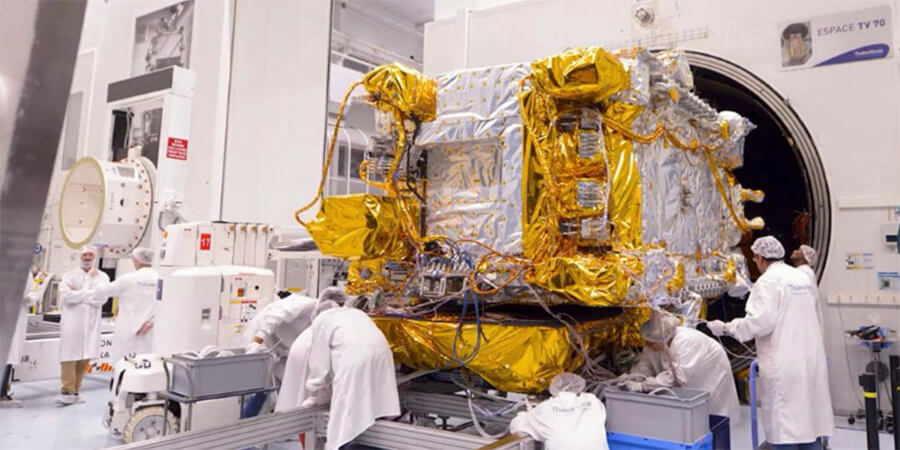Telkom Indonesia has announced that its subsidiary, Telkomsat, will launch its 11th satellite— the first in its fleet to use High Throughput Satellite (HTS) technology. High Throughput Satellite (HTS) are advanced communication systems that utilize satellites capable of transmitting and receiving data at exceptionally high speeds and capacities. These satellites are equipped with advanced technologies such as multiple spot beams, frequency reuse, and onboard processing capabilities to maximize the efficiency of data transmission. HTS/VHTS systems offer significantly higher data throughput compared to traditional satellites, enabling them to support a wide range of applications including broadband internet access, multimedia content delivery, mobile communication services, and more. They play a crucial role in meeting the growing demand for high-speed and reliable connectivity, especially in areas where terrestrial infrastructure is limited or unavailable.
The Merah Putih 2 satellite will be launched from Cape Canaveral, Florida, on a SpaceX Falcon 9 rocket on February 21 (Indonesian time). It will be positioned in the 113˚ East Longitude orbital slot.
Thales Alenia Space built Merah Putih 2 on the Spacebus 4000B2 platform, which has a 15-year lifespan. The Spacebus 4000B2 is a medium-class telecommunication satellite with a launch mass of 3,000kg and can accommodate a large range of payloads in various bands including Ku, C, Ka, X, S and L. It renders a total satellite power ranging up to 11.6kW with medium RF power of 105W / 110W in Ku band.
Strengthening Telkomsat’s Business Portfolio
Telkom President Director, Ririek Adriansyah, stated that Merah Putih 2 provides an opportunity for Telkom and Telkomsat to strengthen their satellite business portfolio. By leveraging the capabilities of Merah Putih 2, Telkom and Telkomsat aim to cater to the increasing demand for satellite-based services, positioning themselves as key players in the evolving telecommunications landscape.
The growing demand for satellite-based services is driven by their critical role in bridging communication gaps, particularly in remote and underserved areas where traditional infrastructure is lacking. Satellites provide essential services such as broadband internet access, mobile coverage, and broadcasting, ensuring global connectivity and equal access to information. Additionally, they play a vital role in emergency response efforts and support various applications like surveillance and environmental monitoring, highlighting their versatility and importance in addressing modern-day challenges and fostering sustainable development.
“The potential for the backhaul business targeted by this satellite is projected to be very positive,” he said in a statement. “This can be seen from the enthusiasm of prospective corporate customers and VSAT operators who want to use this satellite service.”
When Telkomsat contracted Thales Alenia Space to build the satellite in 2021, the reported cost was INR 3.8 trillion (USD 242.8 million). Telkomsat's President Director, Lukman Hakim Abd. Rauf, stated that “the partner selection process has also considered the lowest cost-per-Gbps, thereby producing satellites with larger capacities at competitive selling prices.”





